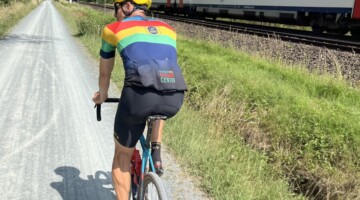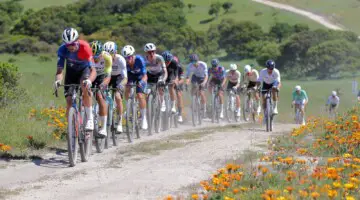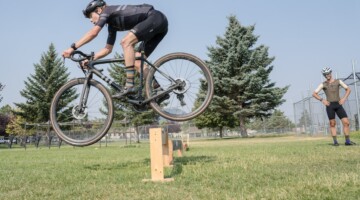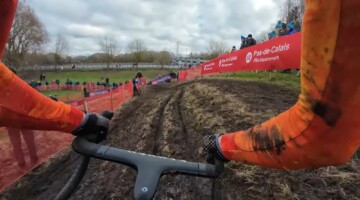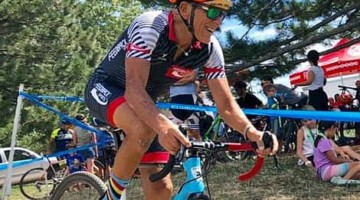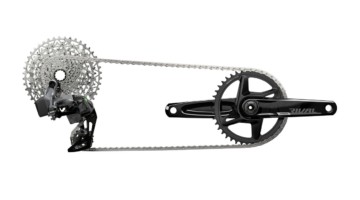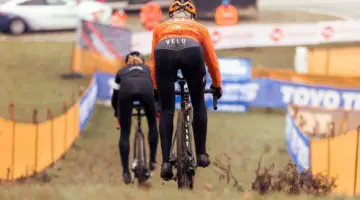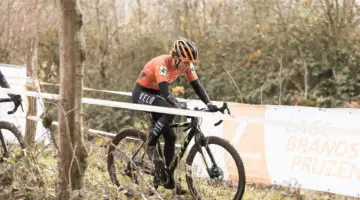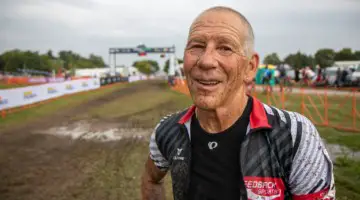One thing we commonly hear in interviews with athletes is the role mental strength plays in their ability to ride well. For a lot of them, learning to win or overcoming obstacles is as import to their success as increasing their FTP and improving technical skills. Amateur athletes also face mental challenges that can hinder our ability to get the most out of our hobby. Sure some of us can afford to add a sports psychologist to our support team, but for many, the process of dealing with mental challenges is a trial-and-error process fraught with a lot of error.
A new book called “The Brave Athlete: Calm the F*ck Down and Rise to the Occasion” by Simon Marshall, PhD and Lesley Paterson hopes to provide endurance athletes—amateur and pro—with tools to face down our frequent worst enemy: our brain. “The Brave Athlete” takes a comprehensive approach to mental training, with four sections that cover a variety of mental issues athletes face, including passion and motivation, overcoming setbacks and developing mental resilience and strength.
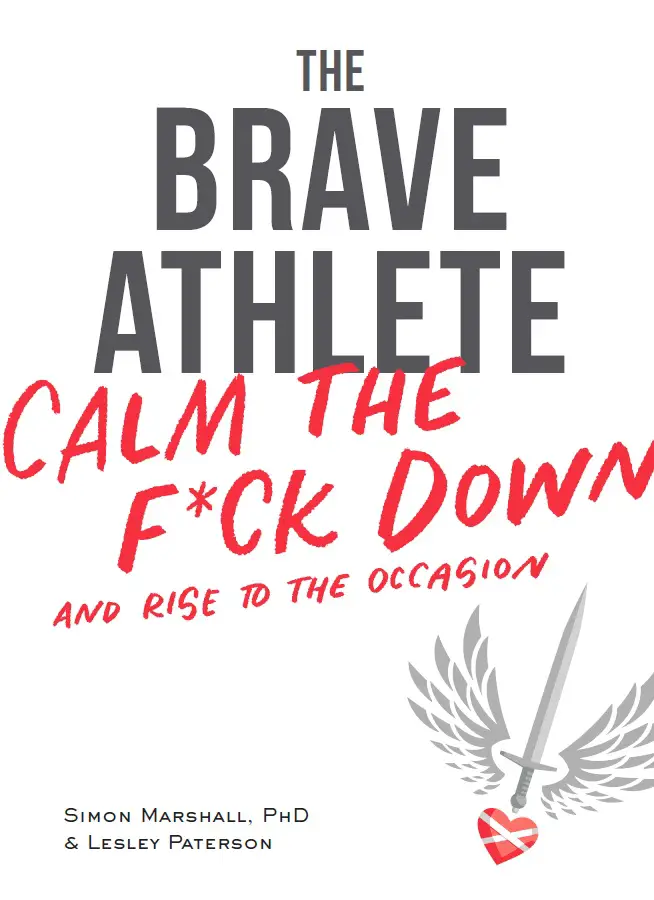
The Brave Athlete is available from Velopress. photo: courtesy
Rise to the Occasion
Paterson and Marshall are a couple who run Braveheart Coaching based out of San Diego, CA. Paterson is a professional triathlete and Marshall is a professor in sport and exercise psychology at San Diego State University. In “The Brave Athlete” and through their coaching, the two combine mental and physical skills into one package. Given Paterson’s background, a lot of the examples are triathlon-related, but they are still more-or-less applicable to cycling.
“The Brave Athlete” starts with a fairly in-depth of the discussion of the brain and how it works. One theme that reoccurs throughout the book is our internal struggles between our “chimp brain” versus the “professor brain.” The chimp brain functions on emotion and feeling while the professor brain deals in facts and logic. The authors claim a major part of “calming the f*ck” down as they put it is managing the competing tendencies of the two.
The rest of the book is broken down into three sections with chapters that address several subsections within each. The sections are: Heart—honing your passion, motivation and identity; Wings—dealing with setbacks and obstacles; and Fight—developing new battle skills.
The book reads as more of a reference guide than a narrative to be read straight through. With the thoroughness of the topics, only some of them are likely to be applicable to each of us at a given time. For example, you may not be dealing with an injury right now, but suffer a back injury and the chapter on dealing with setbacks will become relevant.
Writing in “The Brave Athlete” is conversational and casual, making it feel like you are interacting with a coach more than reading a textbook. Some examples include talk of “shit quits,” “embracing the suck” and “HTFU.” For the record, they do not refer to the third one as “Rule V.”
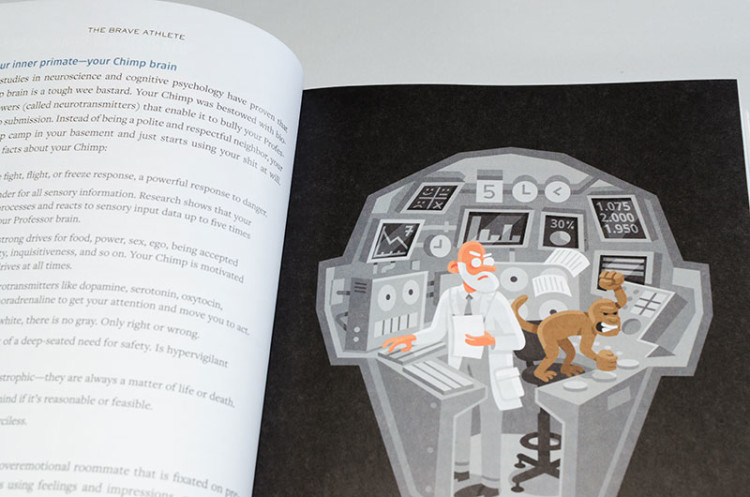
The writing and accompanying illustrations try to keep the prose conversational. photo: courtesy
Someone asked me my thoughts on “The Brave Athlete,” and my first response was “It made me be really honest with myself!” Each chapter starts with exposition and weaves in case studies, strategies and what the authors call “Nerd Alerts.” The honesty comes at the end of each chapter.
The challenging part of each chapter is the exercises. Each exercise is a take-out-your-pen-and-paper kind of thing that requires some self reflection and thought. The Brave Athlete is refreshing because it eschews easy slogans—one of my favorite chapters was the shortcomings of “just do it” as a way of developing good habits—but at the same time, if you want to improve your mental resilience, it forces you to take a pretty real look inward.
The Verdict
Whether is be recovering from an injury, comparing ourselves to others, feeling like quitting or a myriad other sports psychology issues, even the best among us could probably benefit from some mental training. “The Brave Athlete” serves as a reference with information and exercises that can help identify and address the issues holding us back.
The challenge? Marshall and Paterson force us to confront our shortcomings head-on and address them in an honest and self-aware fashion. There is no magic slogan that will help you win a race in the last lap, but if you want to get mentally tougher, The Brave Athlete provides a tool to help improve your mental limiters.
“The Brave Athlete” reads like a training reference more than an armchair read. Since it covers so many topics, it can serve as a helpful tool athletes can call on for different situations over the course of multiple seasons.
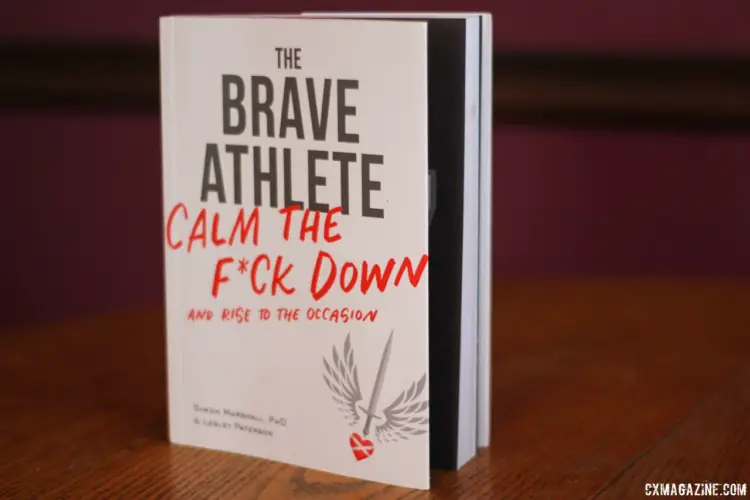
The Brave Athlete by Simon Marshall and Lesley Paterson is available from Velopress. © Cyclocross Magazine
Velopress has a preview of The Brave Athlete available via its website. See below for more information about the book.
About The Brave Athlete
Price: $24.95
Authors: Simon Marshall PhD and Lesley Paterson
Publisher: Velopress
Pages: 342
More Info: velopress.com




